Bonus:
Dolemite is My Name
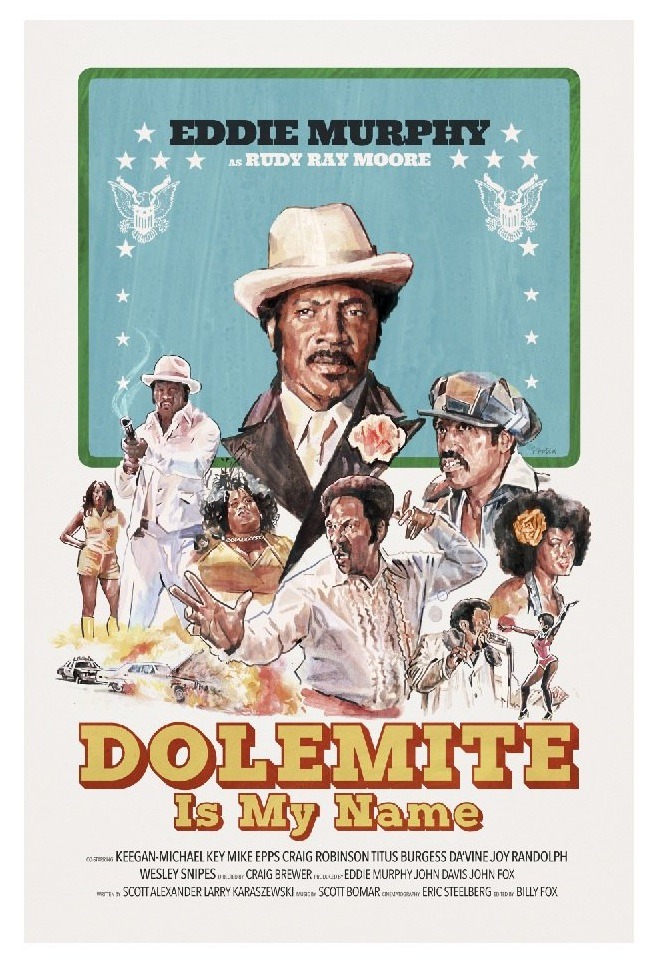

14. American Son
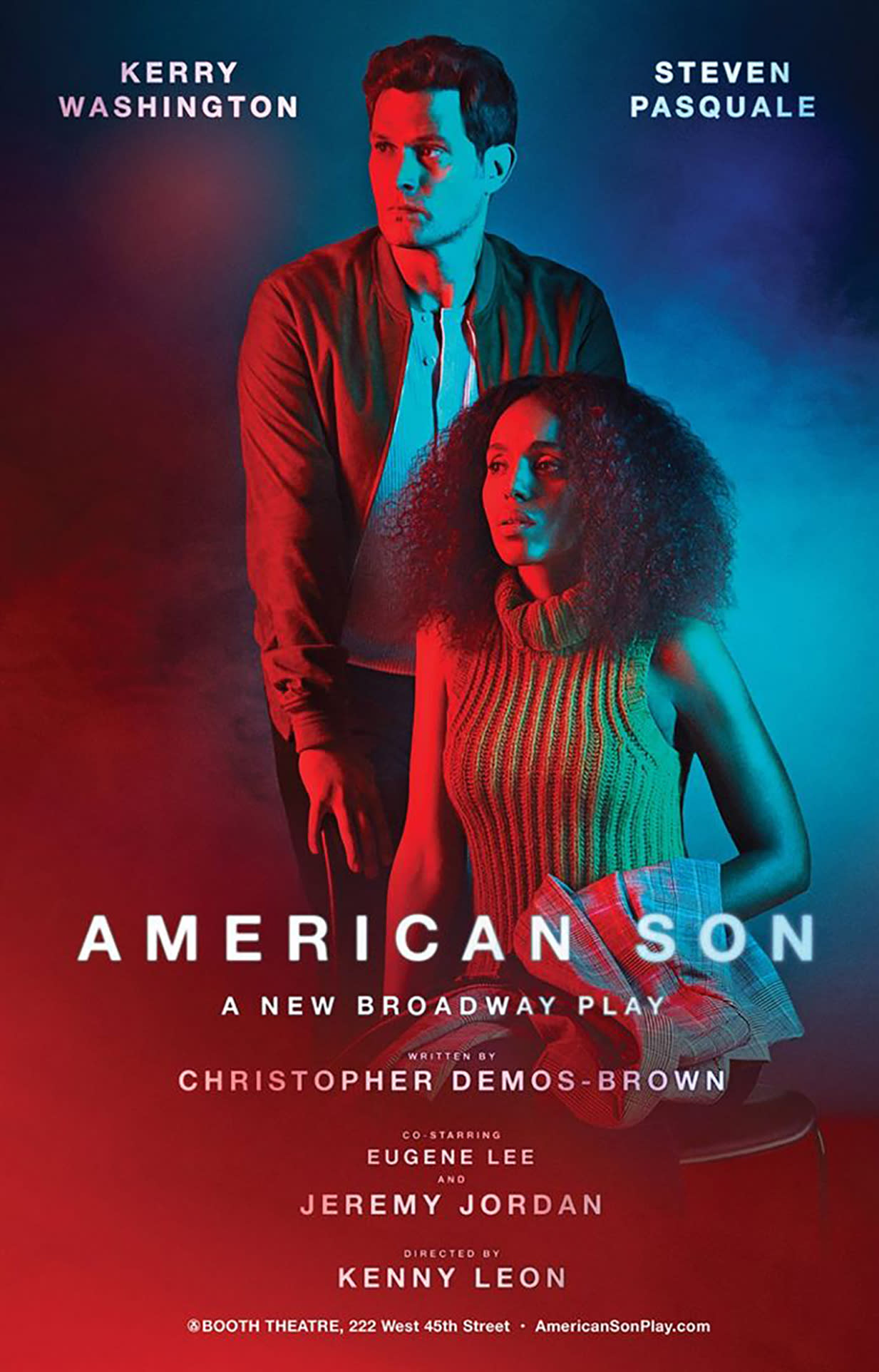

After being notified that her son was involved in an altercation with law enforcement, an African-American mother spends a long night in a police station in search of more information.
13. The Cloverfield Paradox

This prequel to Cloverfield explains that a particle accelerator intended to provide limitless energy to the planet has been transported to the Cloverfield Space Station for testing, as it's unknown what the unintended ramifications of operating such a device could be. It's been theorized that the device has the ability to rip holes in the fabric of space, thereby allowing unimaginable abominations access to the Earth.
After the team of scientists aboard the station temporarily achieve stability after two years of unsuccessful attempts to operate the device, the particle accelator overloads, resulting in a power surge throughout the Cloverfield. The group, including communications officer Ava Hamilton, slowly begins to realize that they have inadvertently opened a doorway between our world and an alternate dimension. One of the consequences is that Ava's husband, Michael, witnesses a gigantic monster roaming through the city in which he lives.
12. The Harder They Fall
11. The Perfect Find
10. Murder Mystery 2
9. Bright
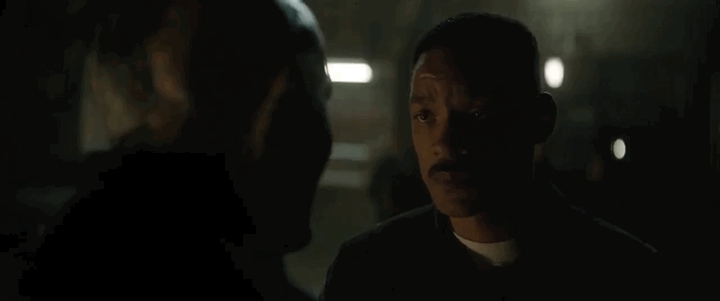
Bright is only second to The Battle of the Five Armies as a damn good movie involving a magic wand and has Harry Potter beat by a mile. You know how Game of Thrones takes place in a medieval world populated by humans, giants, dragons, zombies and witches? Bright is like a modern-day version of Thrones -- except all of the Black people aren't slaves. Keep your eyes peeled for the centaur and dragon too. Netflix spent $100 million putting this flick together and you can tell by looking. It was money well-spent.
8. Army of the Dead
After Vegas falls to a zombie outbreak, a billionaire hires a team of specialists to infiltrate the overrun city and retrieve his duckets from a casino vault.
7. 13th
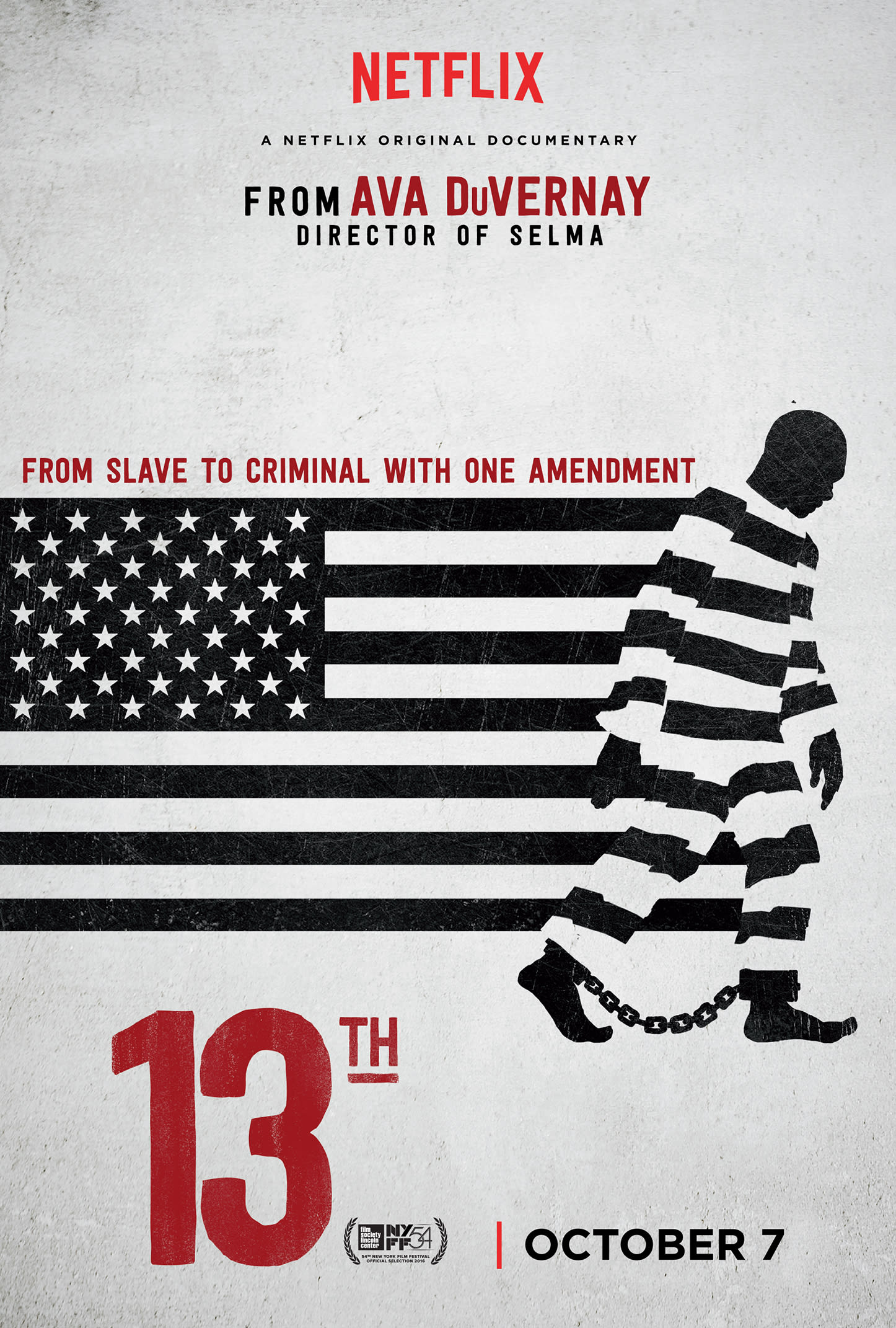
The 13th Amendment to the U.S. Constitution officially abolished slavery in this country. This abolition had to be an amendment because the protection of slavery as an institution had been incorporated into the Constitution at its inception.
13th, directed by Ava Duvernay (who also directed 2014's Selma), centers on a loophole built into the amendment which has been used to justify legal human bondage ever since its ratification in 1865. The amendment reads: " Neither slavery nor involuntary servitude, except as a punishment for crime whereof the party shall have been duly convicted, shall exist within the United States, or any place subject to their jurisdiction." The film illustrates how that highlighted section has allowed convicted criminals to be effectively enslaved to this very day. One of the many things the documentary points out is the fact that no distinction whatsoever is made between horrendous crimes and petty misdemeanors. 13th explores the varied interrelated institutions at play including: racism; the relationship between the government and the private for-profit prison industry, which depends on criminal convictions for its survival; the "War on Drugs"; and the powerful, yet secretive coalition between U.S. politicians and Corporate America - ALEC.
ALEC (American Legislative Exchange Council) is a forty-year-old organization comprised of conservative, mostly Republican, lawmakers and corporation heads that has been responsible for drafting legislation aimed at furthering right-wing, corporate agendas for decades. This is roughly the way it works: Group members (both political and private sector) propose bills, which the legislators introduce to their respective legislative bodies, without ever divulging the true origin of said bills. During the 1980s, ALEC opposed U.S. efforts to end apartheid in then-segregated South Africa. Past members include: former Speaker of the House John Boehner; Ohio governor John Kasich; and North Carolina Senator Jesse Helms. While ALEC was effectively outed in 2011 by The Nation and later The New York Times, Bloomberg Businessweek and "The Daily Show", 13th points out that it continues to thrive and remains largely unknown to the American public. After it was dragged out of the shadows, many of ALEC's corporate members cut their ties for fear of fallout from the association, including: Wal-Mart; Google; Facebook; Coca-Cola; Blue Cross and Blue Shield; Wendy's; McDonald's; Amazon; Apple; GE; Procter & Gamble; Ebay; Yahoo!; Microsoft; BP; T-Mobile; and CCA.
CCA (Corrections Corporation of America), the largest owner and manager of private prisons in the country, profits from crime bills it promoted as a member of ALEC before rescinding its membership. The aforementioned crime bills, including the federal three-strikes Law, mandatory minimums, and stop-and-frisk policies insured a steady influx of inmates, largely African-American and Hispanic, into their institutions. The film also points out that ALEC introduced the controversial stand-your-ground law, which allowed the then-29-year-old George Zimmerman to legally pursue and kill unarmed 17-year-old Trayvon Martin.
Pfizer, AT&T, ExxonMobil and State Farm Insurance are still active ALEC members.
Duvernay interviews dozens of people on all sides of the issues covered here, including: politicians, including Charles Rangel and Newt Gingrich; professors; social activists, including Angela Davis; former inmates; and social pundits, both conservative and liberal. Video footage (filmed years prior to their canditorial declarations) of the two current presidential front-runners, Donald Trump and Hillary Clinton, is presented in which each one gives an argument for incarcerating African-American men. Trump is featured in a clip decrying the Central Park 5 -- a group of African-American teenagers who were coerced by NYPD detectives into confessing to raping and violently assaulting a white female jogger, Trisha Meili, in New York's Central Park. He took out full-page ads in New York's four major newspapers advocating capital punishment for the teens. The young men were ultimately exonerated by DNA evidence after having served between six to 13 years in prison. Clinton gives her now-infamous speech labeling African-American teens as "super-predators". It's a wonder that so much ground is covered in the doc's scant 100-minute running time.
One of the most surprising moments of the film is Republican power-broker and Trump-supporter Gingrich declaring that white Americans have no idea what it's like to be African-American.
13th was filmed in secret and on September 30, 2016, became the first documentary to open the New York Film Festival. 13th's subject matter is not common knowledge - but it should be. See it immediately. If you have a Netflix account you can do just that.
6. Project Power

Because of the global movie theater shutdown spurred by the COVID-19 pandemic, two MCU movies, a Spiderverse movie and the final X-Men film have all been postponed -- and only two remain on the release schedule for 2020. Well Project Power has filled the superpower movie void left by those release date shuffles in spectacular fashion.
PP is a neo-noir featuring a mysterious loner and a police officer independently investigating the destructive proliferation of a new street-drug in New Orleans. Instead of providing a momentary high, these $500-a-pop capsules imbue the consumer with a unique superpower -- but only for five minutes. Because the pills react differently based on users' genetics, one dose can be lethal. Some of the users who actually survive the ingestion use their newfound abilities for nefarious purposes and the dealers themselves attract the violence that comes with the sale of most hard drugs.
The story cleverly references real-life medical atrocities and conspiracies that I won't specify here because doing so would amount to giving spoilers. But the superpowers angle is enough to put pressure on some of your favorite comic book adaptations. There's even a teen sidekick named Robin and an appearance by Joseph Gordon-Levitt, who portrayed Robin to Christian Bale's Batman in The Dark Knight Rises.
Project Power is the first movie involving people with superpowers with a Black lead (Jamie Foxx's Art Reilly) since the phenomenally successful Black Panther. And though Panther has been assured a sequel, it's scheduled release date is two years away and more than two years have passed since the first film's debut. 2016's Suicide Squad has been given a quasi-sequel -- set to hit theaters next year -- but Will Smith's Deadshot won't be in it. Dwayne "the Rock" Johnson's Black Adam will debut at the end of 2021. And by the time the next Blade movie arrives, it will have been two decades since the Wesley Snipes-led Blade trilogy ended. So if a Project Power sequel is greenlit -- and PP is certainly good enough to warrant one -- it'll be a welcome and much-needed addition of color to the ever-growing field of superhero movie series.
Project Power is unquestionably the best movie of the summer and if it becomes an actual franchise, the MCU, the DCEU and the Spiderverse may have some competition on their hands.
5. Sand Castle
Set during the second Iraq War, Sand Castle is the best film to cover that conflict.
4. Purple Hearts
Despite their mutual physical attraction, when Cassie meets Luke, she immediately stereotypes him. And her attitude prompts him to act accordingly. However, their respective dire straits lead to a literal marriage of convenience. Unmarred by silly rom-com conventions, Purple Hearts ditches the cheap laughs in favor of sincerely illustrating how people with seemingly divergent worldviews and different backgrounds can find common ground -- and more -- if they interact with each other long enough to see each other as people.
3. Extraction
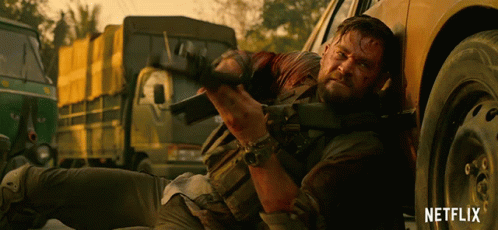
Chris Hemsworth reteams with the Russo brothers -- without the Endgame fat suit -- for a non-superpowered comic book movie about a merc-with-a-mission to rescue an Indian drug kingpin's son.
Hard-bitten Australian mercenary Tyler Rake runs point on a team hired to liberate an imprisoned Ovi Mahajan's son from goons employed by his equally powerful rival, Amir Asif. Eventually, Rake discovers that he's been double-crossed: Mahajan used him to set Ovi Jr. free and has sent his own ex-Indian Special Forces soldier, Saju Rav, to snatch Junior from his rescuers. After being betrayed again (by an old comrade) and realizing that he's met his match, the Aussie forms an alliance with Rav in order to complete the suicide mission and keep Asif's army of corrupt police officers from recapturing his charge.
2. Extraction 2
Tyler Rake's second cinematic mission proves to be just as exhilarating as his first -- and well worth the three-year wait for its streaming debut. What's concerning is the tell-tale ending -- complete with headliner Chris Hemsworth's MCU castmate, Idris Elba -- that suggests that this particular series is cueing up to expand into its own universe. And the movie's biggest flaw is the incongruous insertion of humor, which is neither wanted or needed in this saga about mercenaries and the brutal lives that they lead.
Sequels often invite comparisons to the film(s) that preceded them. But the Extraction movies are so intrinsically linked and similar (in narrative, tone and personnel) that ranking them seems inappropriate. Extraction 1 and 2 are simply two halves of a single story.
1. Outside the Wire
Outside the Wire offers a fresh take on the familiar "rogue AI" story, all the while questioning the wisdom of military reliance on detached warfare, such as the use of drones in combat. Star Anthony Mackie's casting is fitting, given his cinematic history as Sam Wilson, the right-hand man of Steve "Captain America" Rogers in five MCU movies. This time around, Mackie is the super-soldier and the captain as a U.S. Marine in the not-too-distant future.
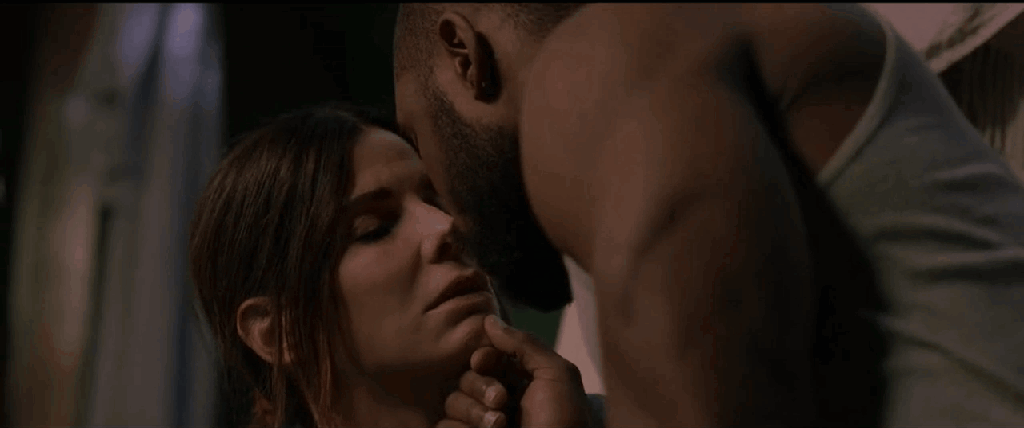
Updated 7/2/23














No comments:
Post a Comment